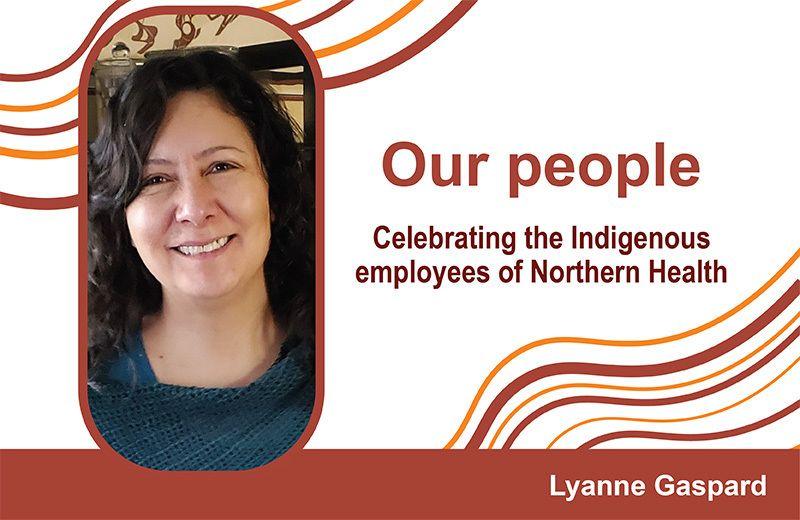June is Indigenous History Month. This is a time for all Canadians – Indigenous, non-Indigenous, and newcomers – to reflect on and celebrate the history, heritage, and diversity of First Nations, Inuit, and Métis Peoples in Canada.
At Northern Health, we want to celebrate our Indigenous colleagues who contribute in countless ways to help us uphold our commitment to building a health system that honours diversity and delivers culturally safe services by providing respectful and inclusive programs and initiatives across Northern BC.
Whether they are an Indigenous Patient Liaison, a Nurse Practitioner, or the VP of Indigenous Health, the Indigenous employees of Northern Health are our friends and neighbours, and we want to get to know them better! To that end, we’ll be sharing interviews and conversations with Indigenous workers at Northern Health about their roles and experiences in their professions during the month of June.
Introducing Lyanne Gaspard: Substance Use Resource Nurse, Prince George, BC
Weyt-kp (Hello), my name is Lyanne Gaspard. My father is Secwepemc from Stswecem’c Xgat’tem First Nations community in central BC and my mother is Cree from Treaty 8 Territory. I was born and raised in Prince George
Growing up, I did not know my people, my culture or my ancestral history. That changed in my second year of nursing school when I was invited to my Secwepemc community to work as a student for the Stswecem’c Xgat’tem First Nations Health Centres. In that summer, many moons ago, I learned much more than “medical” needs of my community. I learned about wholistic health, not only for the individual but also for the family and community as a “whole.” I began to understand how important family, community, culture, language, tradition and land was to my people. I heard stories of how strong my ancestors were and how we, as a community, thrived on the abundance of food and medicine the creator provided for us.
That summer, the summer of 2004, was the start of my healing journey. Part of my journey is to keep balanced in all four areas of the medicine wheel: physical, mental, emotional, and spiritual. I follow the red road. I learned about the history of Turtle Island and the colonial system that built this country and how those structures, policies and practices continue to cause harm to Indigenous people today. I began to understand how my culture was stolen from me and how profoundly that affected my emotional and spiritual health. It is clear we cannot go back, but I learned we cannot go forward either, until society as a whole begins their healing journey also.
For Indigenous people, there is no physical health until the mental, emotional, and spiritual health is addressed. Changes need to be made to the outdated colonial systems, and policies that continue to keep Indigenous people marginalized. Indigenous people and western society would both benefit with Indigenous development, nation building and sovereignty.
Part of continuing my healing journey means embracing my ancestors and following the path the Creator has set for me. For a very long time I felt like I was living two lives. I never really felt like I belonged anywhere - on one side I was a nurse; on the other side, an Indigenous person. These two sides pushed and pulled at me and caused me a lot of inner turmoil.
Today, I am learning to live as a whole person, embracing my career and ancestral lineage and merging the two, to become an advocate for my people. I cannot do it any other way. It is personal for me, and it is bigger than me. The one thing that motivates my work and keeps me trying every day is the hope I can help clear the path for Indigenous education, expertise and leadership for future generations.















I enjoyed hearing more of your story. Sincerely, Carey